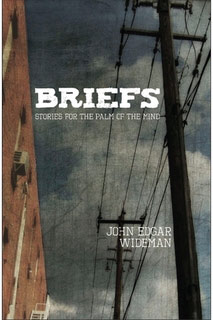“An unwritten story is one that never happens…”
In recent years, how writers tell a story has begun to change.
When stories began, they were told orally; can you picture voices rising into the air, words floating on the breeze?
Then stories were told with pen and paper, the ink making the paper bleed the story that it wanted to tell. Writers could finally keep their stories, hold on to them, as if they were talismans against the dark.
Today, the way we tell stories has changed once more. No longer are people content to tell tales that are long and rambling. No, story has once again gone through a metamorphosis, changing itself from a caterpillar to a butterfly, shedding words as it would shed its cocoon or a snake sheds its skin.
This shorter than short fiction is called Micro Fiction. Stories can be anywhere between thirty words to three hundred words, from five hundred words to a thousand. Generally, Micro Fiction stories are no longer than two pages or so. Each, though short, has a beginning and an ending. Though it may not be the ending you are looking for.
What is so wonderful about Micro Fiction is that it challenges our ideas of the norm; it goes against what has already been established by a long line of writers and establishes norms of its own.
Like every discipline within the craft of writing, there are some who think they can write Micro Fiction and some who actually can write it.
Thankfully, John Edgar Wideman is one of the latter.
A two time Pen/Faulkner Award winner, Wideman wanted to explore and discover words in a different way. Rather than writing another collection of short stories, Wideman wanted to explore a different side to his writing. To see if he could write even shorter stories. Micro Fiction stories. And he succeeds brilliantly.
From the brief explination behind the title, which serves as the first story in Wideman’s new collection of Micro Fiction, you know that you are in for a treat. The writing is crisp, the words are haunting and there are no stories longer than a page or two; perfect for our fast paced society that is constantly on the move.
The collection is actually a hodge podge of many different genres. Some stories are fiction, some are non-fiction and are indeed about Wideman’s own life such as the short and very private Divorce or the aptly named short story Writing.
Some stories in the collection are dark and haunting like Hit and Run, Haiku and Shadow; they explore the sides of the human heart that none of us want to look at. But at the same time, there are funny stories here too. My favourite called Dear Madonna, a litter to the Queen on of Pop herself.
All through out this collection, Wideman makes sure to use every word to its fullest potential. Some of the stories don’t make sense; but they don’t have to. The rambling stream of consciousness stories are essentially a very private look into Wideman’s mind that leave us wondering, and wanting, once the brief story is finished.
Briefs: Stories From the Palm of the Mind is really like a patchwork quilt. Each story is like a patch in that blanket; all sorts of textures and fabrics and colours blending together to make a whole. Though at first you may be put off by the colour scheme or the use of gold lame next to red corduroy, after a while it doesn’t matter anymore.
Because after a while, you realize that one story would not work without the other.
Since finishing Briefs, I’ve been haunted by Wideman’s words. Especially by the stories I didn’t care for. The words come back to me at moments when I should be thinking or doing something else. That is the true power of story: to take you away from the moment you are in now and take you somewhere else.
Do yourself a favour and take a moment or two to read and enjoy Briefs: Stories from the Palm of the Mind by John Edgar Wideman. He is truly a master of the Micro Fiction short story. You may not understand or like all the stories in the collection.
But you’ll have a hell of a journey going from beginning to end.

Leave a comment